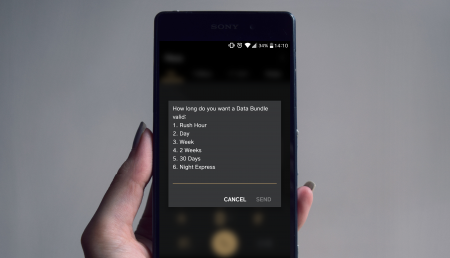The nation’s second-largest health system, Ascension, has agreed to allow the software behemoth Google access to tens of millions of patient records. The partnership, called Project Nightingale, aims to improve how information is used for patient care. Specifically, Ascension and Google are trying to build tools, including artificial intelligence and machine learning, “to make health records more useful, more accessible and more searchable” for doctors.
Browsing: Data
Facebook-owned Oculus has rolled out some new features for Facebook on the VR platform. The catch? By using them, you’re agreeing that your (first-party, Facebook says) VR usage will be subject to Facebook scrutiny.
Before Monday most South Africans would probably never have heard of competition commissioner Tembinkosi Bonakele. But after his scathing attack on the “concentration and duopoly” of Vodacom and MTN as “a bias against the poor” they’ll know who he is.
Satellites are becoming increasingly important in our lives, as they help us meet a demand for more data, exchanged at…
East Africa attracts millions of tourists every year. Over the past 10 years, its earnings from tourism have doubled. Compared to the rest of Africa, the region is experiencing healthy economic growth. This makes it a promising investment destination.
South Africa’s data prices have been found to be excessively high by the country’s Competition Commission. The short version of the Commission’s announcement, made earlier today, is that mobile service providers MTN and Vodacom have two months to drop pricing to a more appropriate level.
There are more than a few new startups in South Africa that are shaking up the status quo. Two of…
Whether you agree or not, Netflix is currently dominating the streaming-race. It (arguably) has the best content, original and otherwise, available to South Africans right now. Yeah, streaming services are popping up like flies in the South African summer. But here, we don’t have access to half of ‘em.
Personal data reflect our web searches, emails, tweets, where we walk, videos we watch, etc. We don’t own our personal data though; whoever processes it ends up owning it, which means giant monopolies like Google, Facebook and Amazon.
While many websites offer a way to opt out of targeted advertisements or unwanted emails, we discovered in our recent research that exercising privacy choices isn’t always easy. But that helped us formulate some simple solutions that could make things easier for users around the web.










